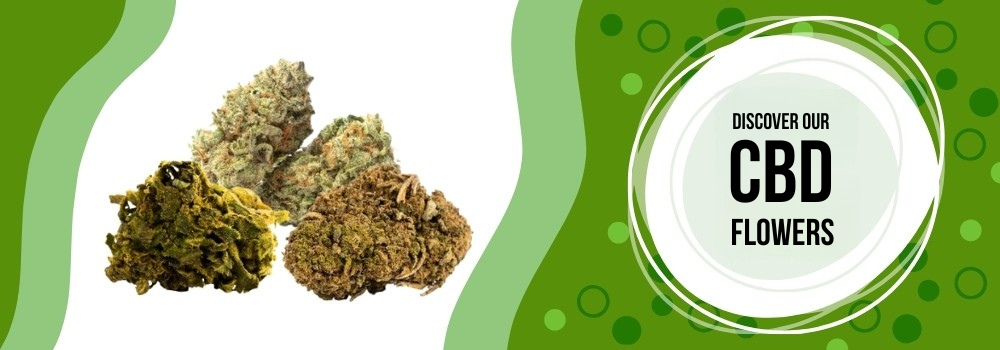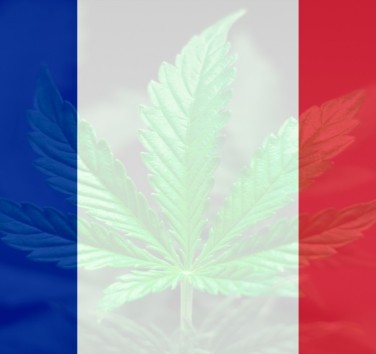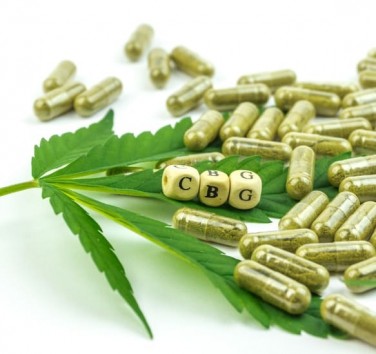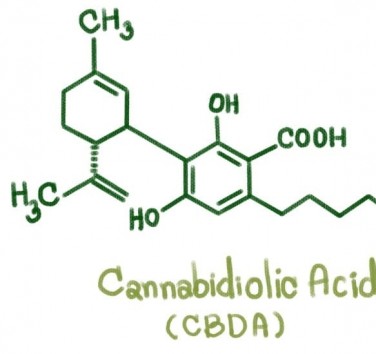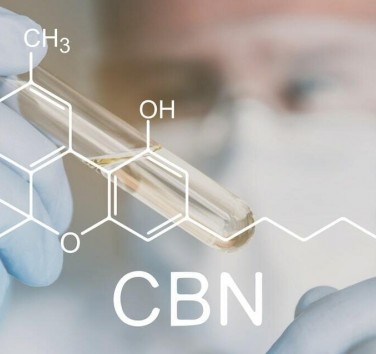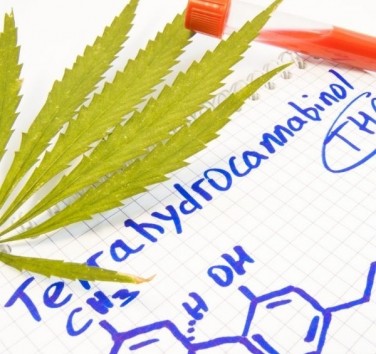CBD vs THC: Main differences between these cannabis molecules
Definitions of THC and CBD
What is THC?
Better known as tetrahydrocannabinol, THC is one of the two molecules that we think of when we talk about cannabis. This molecule is especially popular for the psychotropic effects that it provides to its consumer. This molecule is most present in the cannabis flower.
What is CBD?
CBD, which is also known as cannabidiol, is the second most talked about molecule when we talk about cannabis. Also present in large quantities, this molecule has virtues which are very useful and interesting for all medical purposes.
The first differences CBD vs THC
These two molecules are very interesting for their distinctive effects, but also for their compositions which are very different. THC, for example, has psychoactive effects, meaning that it acts on the consumer's brain, while CBD has anti-inflammatory properties as well as several other properties like acting against anxiety. It also acts on the nervous system of the consumer.
But we must be careful, because a lot of research is still underway on these two molecules in order to have as much data as possible. Of course, CBD and THC are not the only molecules present in cannabis, but they are the most interesting from a scientific point of view.
Often placed in parallel and often associated, these two molecules have very specific differences for their use.
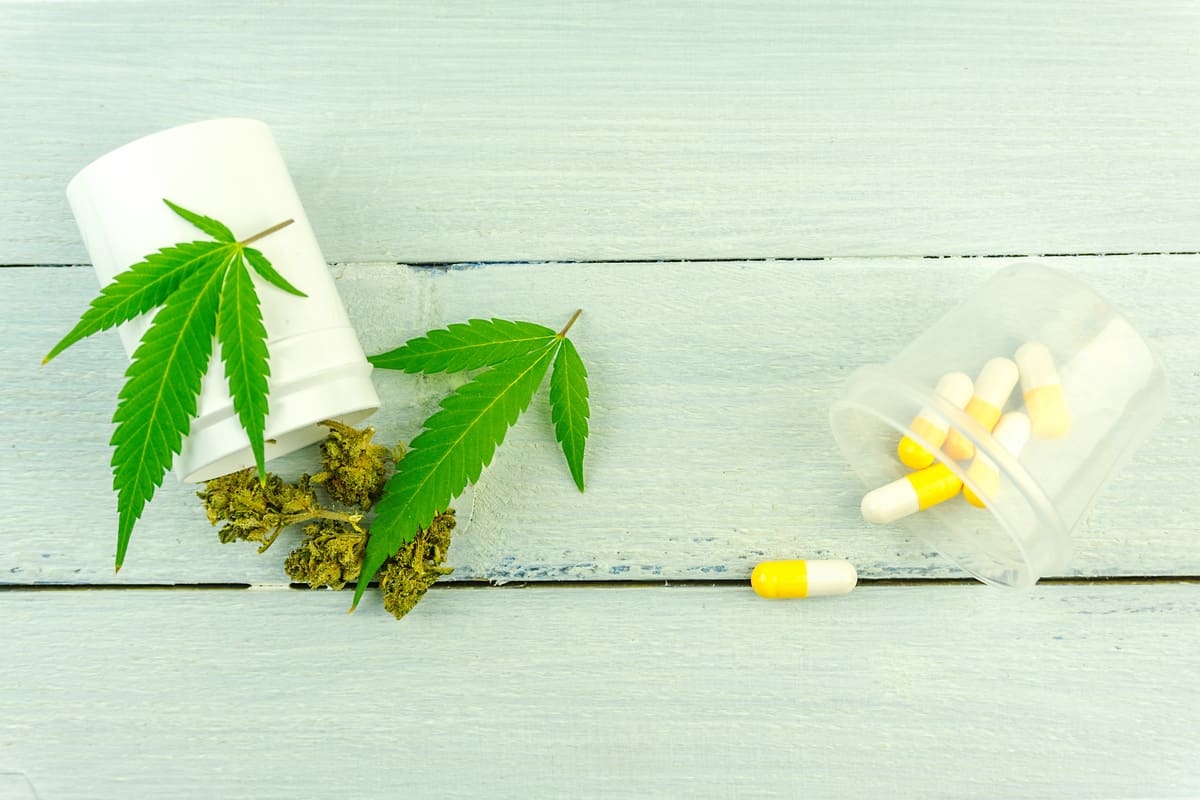
CBD vs THC from cannabis, but which one is legal in France?
The short answer: CBD is legal in France, THC is illegal.
But why?
Although their chemical composition is the same for these two molecules and each of these molecules has21 carbon atoms, 30 hydrogen atoms and 2 oxygen atoms, their legality is very different.
First of all, you should know that the human body has a complex endocannabinoid system, equipped with receptors intended to receive these molecules, mainly the CB-1 and CB-2 receptors . These receptors are essential for the regulation of many bodily functions, including mood, pain, and appetite.
Of all these receptors, some are located in the brain and others are hidden throughout the body. THC binds primarily to CB1 receptors, which are concentrated in the brain. This binding is what gives THC its notorious psychoactive effects.
CBD, on the other hand, has a different interaction with the endocannabinoid system. Although it does not have a strong direct affinity to CB1 or CB2 receptors, it modifies the way these receptors interact with other molecules. Additionally, CBD may interact with a variety of other receptors in the body, such as serotonin receptors, which could contribute to its anxiolytic properties.
It is this specificity of interaction which largely distinguishes the effects of CBD from those of THC. And it is also this difference which, from a regulatory point of view, has led to distinct legal statuses for these two components of cannabis in France.
Different effects provided by CBD vs THC in cannabis
Working through receptors located in our body, CBD and THC provide different and distinctive effects that may vary between each individual.
The psychoactive effects of THC (not present in CBD)
In fact, when a user consumes cannabis, they automatically ingest CBD and THC. THC will stick to the CB-1 receptor on which it will provide different effects such as:
- A physical and moral dependence on this substance which can cause serious dangers to health and financial security.
- Anunusual fatigue for the consumer which can be dangerous if they need to be vigilant such as when driving a vehicle.
- A decrease in physical abilities is also observed in certain consumers.
- breathing difficulties are also possible for regular or occasional users.
- Vomiting and nausea may occur, especially if it is the first time or if the user is not used to it.
- discomfort may occur in occasional or regular users.
- An increase in heart rate is observed when consuming cannabis.
- Due to its route of administration and method of use, cannabis is often “smoked” and as a result,increases the risk of developing lung, throat or mouth cancers .
- Even more surprising, THC could causeattacks of paranoia and hallucinations which are often publicized and dangerous for the subject.
There are also so-called “at risk” populations for whom consuming cannabis, and particularly THC, is not recommended, such aspregnant women, because it can reduce the resistance of the placenta against bacteria present in the woman's body.
The therapeutic effects of CBD (not present in THC)
CBD is totally different from THC, because it helps counter the effects of the latter.
Submitted to various studies since 1960, CBD is extremely interesting for the beneficial effects that it provides to consumers and that we will see together:
- It helps reduce anxiety, which is a source of anxiety for millions of French people on a daily basis.
- It helps patients who are victims of sleep disorders, such as chronic insomnia.
- It fights againstnausea and vomiting and is particularly used for cancer patients undergoing chemotherapy.
- It helps to reduce anxiety attacks, in particular thanks to its action on consumer anxiety.
- CBD is known toreduce the various inflammations that one may experience.
- It has been proven that CBD canfight against epileptic seizures, especially in young people.
- This molecule also helps prevent cardiovascular diseases of which we can all be victims.
- It also has properties against skin diseases.
- CBD helps to prevent diabetes, thanks to these molecules and its action on the body.
- Another surprising fact is that CBD isuseful for people with schizophrenia by reducing seizures and their intensities.
- It helps toreduce pain linked to osteoarthritis and aches.
- It will also help to reduce certain addictions thanks to these relaxing effects.
WHO, the World Health Organization, declares that CBD is not a drug, nor a substitute for cannabis! Unlike THC, it does not contain any effects psychotropic drugs and are not addictive either.
As you can see previously, CBD and THC are very different in the effects they provide when consumed although their composition is identical. It is also possible to see that CBD is much more suitable for so-called “therapeutic” use to help certain people combat the effects of certain illnesses.
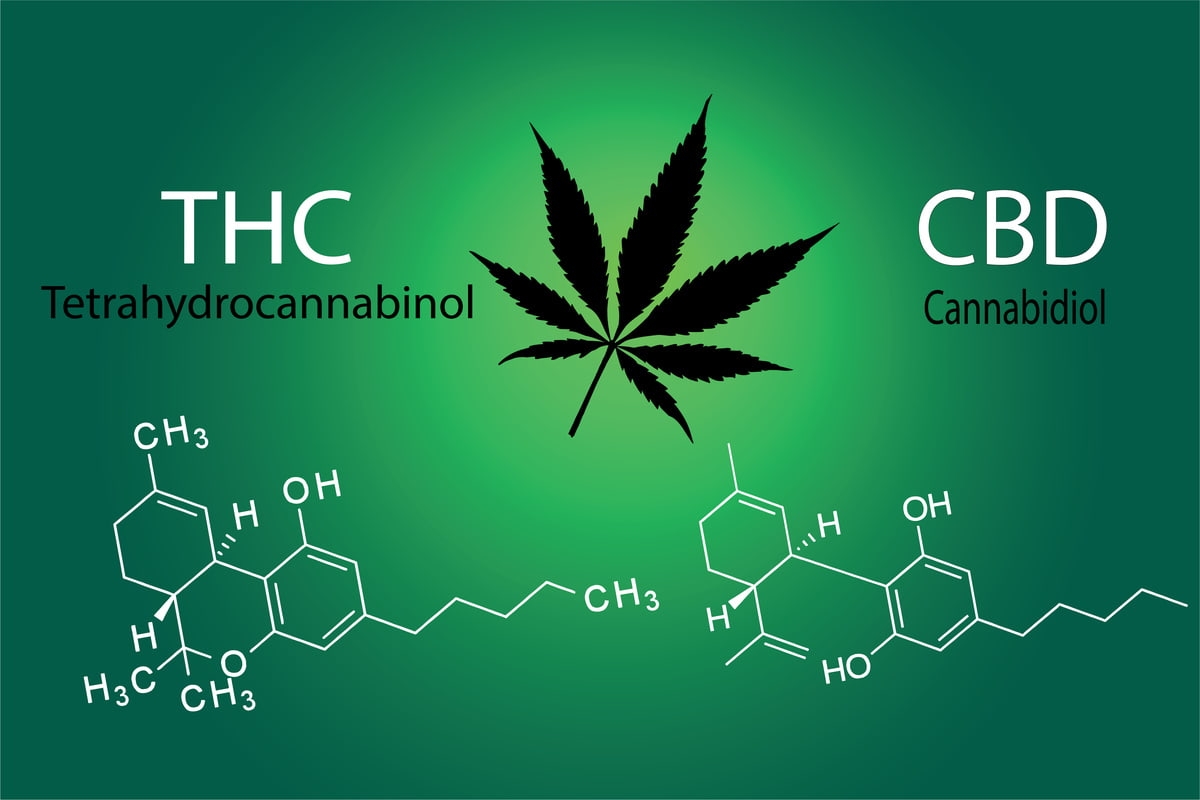
CBD vs THC on anxiety
THC is psychoactive and may cause increased anxiety in some people. The effects of THC are due to its ability to bind to CB1 cannabinoid receptors in the brain, which can cause an increase in the production of dopamine and norepinephrine, two neurotransmitters associated with anxiety.
On the other hand, CBD is not psychoactive and has no negative effects on anxiety. Instead, CBD may reduce anxiety by modulating cannabinoid CB1 receptors and increasing the production of serotonin, a neurotransmitter associated with mood regulation.
Studies have shown that CBD may have beneficial effects on anxiety , such as reducing symptoms of post-traumatic stress (PTS) and social anxiety. On the other hand, THC may worsen anxiety symptoms in some people.
The effects of CBD and THC on anxiety may vary from person to person depending on their individual sensitivity, dose and method of administration.
To conclude, the benefits of CBD vs THC are no longer to be proven, but studies remain essential to be able to secure consumption in the form of oils, vaporizations or flowers and resins.
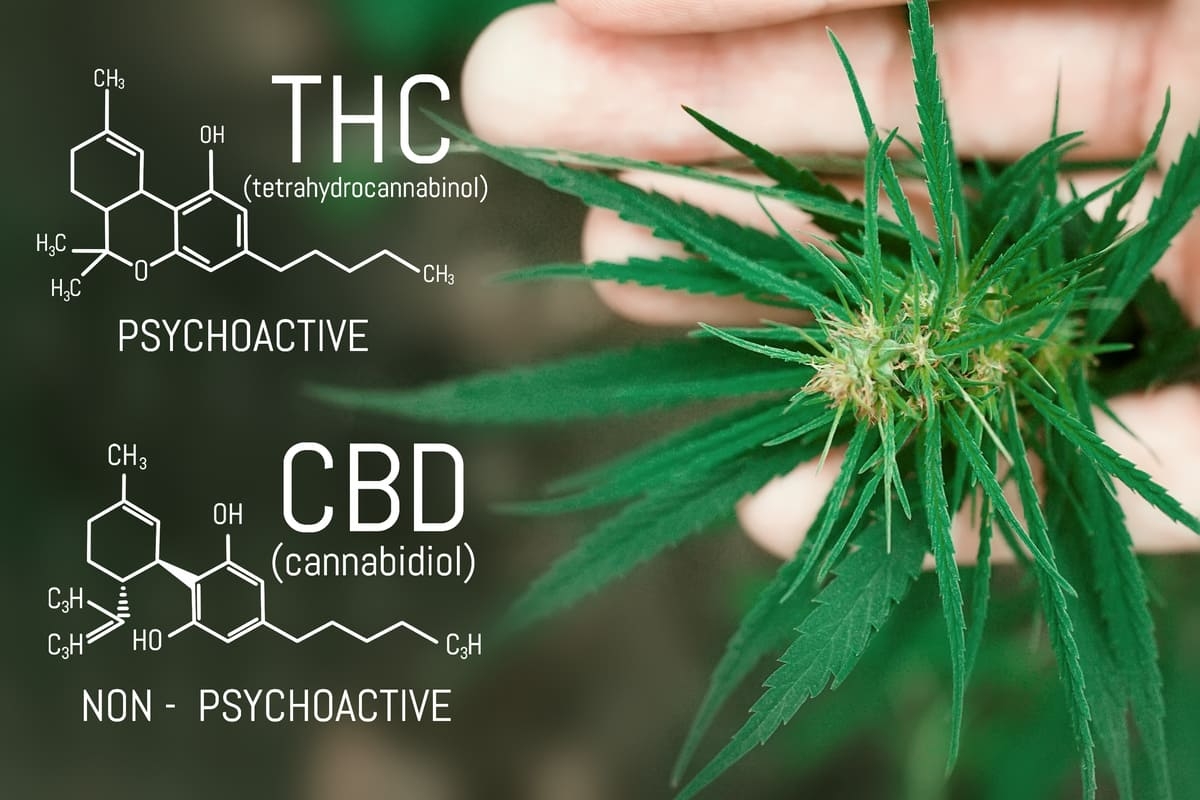
History and Origin of THC, CBD and Hemp
Cannabis, from which THC and CBD are extracted, is one of the oldest plants cultivated by humanity. Its history is deeply rooted in the cultures of many civilizations around the world.
Ancient origins
The first traces of cannabis use date back more than 5000 years in Asia. In ancient China, for example, cannabis was used for medicinal, food and textile purposes. The mausoleum of Chinese Emperor Shen Nung, dating from 2700 BC. BC, contains references to the cannabis plant as a remedy for various ailments.
Hemp: An industrial pillar
Hemp, a non-psychoactive variety of cannabis, has played a crucial role in many industries over the centuries. Its robust fiber made it a material of choice for making ropes, sails and clothing. In European colonies, such as those in North America, hemp cultivation was not only common but sometimes even mandated by law.
Nutrient-rich hemp seed oil has also been used as a lamp oil and dietary supplement. Additionally, hemp seeds were consumed for their nutritional benefits, being a rich source of protein, omega-3 fatty acids and minerals.
Discovery of Cannabinoids
Modern science began to take a closer look at cannabis in the 20th century. It was in 1964 that THC, the main psychoactive compound in cannabis, was first isolated and synthesized by scientists Raphael Mechoulam and Yechiel Gaoni at the Hebrew University of Jerusalem. A few decades later, CBD, another major cannabinoid with potential medicinal but non-psychoactive properties, was also closely studied.
The history of cannabis and hemp reminds us that these plants have always had a place in human society, whether for their medicinal properties, their industrial applications or their cultural implications. Today, with increasing legalization and ongoing scientific research, we are only rediscovering and reevaluating the potential of cannabis.
Demystification: Myths and Realities
- CBD vs THC: The idea that CBD is a “mild” version of THC is a myth. In reality, they have distinct properties and unique effects.
- Medicinal Properties of THC: Contrary to some perceptions, THC is not only psychotropic. In appropriate and regulated settings, it may provide therapeutic benefits.
- Education and Information: The key to understanding lies in information. By demystifying these compounds, we can all contribute to a more nuanced and informed perception of cannabis.

